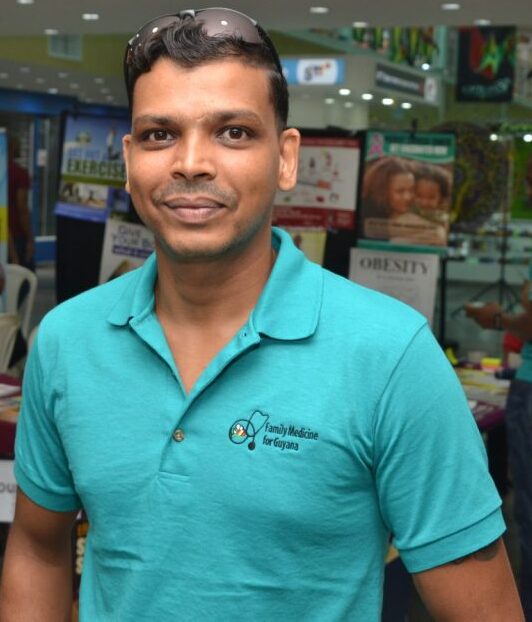
HIV self-testing good for Guyanese, says NAP Manager
15 January 2021 (Georgetown, Guyana) While the government’s recent announcement that Guyanese would be allowed to self-test for HIV has attracted criticism from stakeholders, the new Programme Manager of the National AIDS Programme Secretariat (NAPS), Dr Tariq Jagnarine believes it is a good thing for Guyanese.
In a recent interview with the News Room, Dr Jagnarine welcomed the announcement by Minister of Health, Dr Frank Anthony, and used the opportunity to quell the fears of those involved in the domestic HIV and AIDS response.
He said self-testing has proven to be a best practice in many developed countries. He is confident that with the appropriate guidelines, it can work in Guyana as a majority contributor to helping the government reach its targets, among which, is ending AIDS by 2030.
“It is doable…before the programme is implemented, there will likely be a guided policy on how it will be rolled out and monitored,” Dr Jagnarine assured.
He acknowledged that Guyana has its own challenges with the remoteness of some regions. Still, He said that with proper Standard Operating Procedures (SOPs), self-testing could be effectively done in Guyana.
Asked about the possibility of some persons testing positive and failing to report it to the authorities in keeping with the government’s push to not only have persons on treatment but to ensure viral suppression, Dr Jagnarine said self-testing would not be done in an isolated manner.
He said it would go hand-in-hand with all the other programmes at NAPS which will allow for proper tracking and monitoring of persons.
“It will be highly scrutinised and tracked…I personally wouldn’t want to see somebody tested and we missed them and can’t put then on ARVs,” he added.
The government has not said when self-testing would start in Guyana. The announcement to start self-testing coincides with the launch of a new National HIV Strategic Plan 2021- 2025.
With roughly 8,000 persons living with HIV in Guyana, statistics from the Health Ministry show that at the end of 2020, 90 per cent of those infected knew their status, while 72 per cent were on antiretroviral therapy and 75 per cent of those receiving antiretroviral therapy were virally suppressed.
WHAT IS PANCAP?
PANCAP is a Caribbean regional partnership of governments, regional civil society organisations, regional institutions and organisations, bilateral and multilateral agencies and contributing donor partners established on 14 February 2001. PANCAP provides a structured and unified approach to the Caribbean’s response to the HIV epidemic, and coordinates the response through the Caribbean Regional Strategic Framework on HIV and AIDS to maximise efficient use of resources and increase impact, mobilise resources and build the capacity of partners.
What are the Global AIDS Strategy 2021–2026 targets and commitments?
If targets and commitments in the strategy are achieved:
- The number of people who newly acquire HIV will decrease from 1.7 million in 2019 to less than 370 000 by 2025
- The number of people dying from AIDS-related illnesses will decrease from 690 000 in 2019 to less than 250 000 in 2025.
- The goal of eliminating new HIV infections among children will see the number of new HIV infections drop from 150,000 in 2019 to less than 22,000 in 2025.
What are the 95-95-95 Targets for ending AIDS?
- 95% of People Living with HIV know their HIV status;
- 95% of people who know their status on treatment; and
- 95% of people on treatment with suppressed viral loads.
HELPFUL LINKS:
Global AIDS Strategy 2021–2026, End Inequalities, End AIDS
https://pancap.org/pancap-documents/global-aids-strategy-2021-2026-end-inequalities-end-aids/
Caribbean Regional Strategic Framework on HIV and AIDS (CRSF) 2019-2025
https://pancap.org/pancap-documents/caribbean-regional-strategic-framework-2019-2025/
